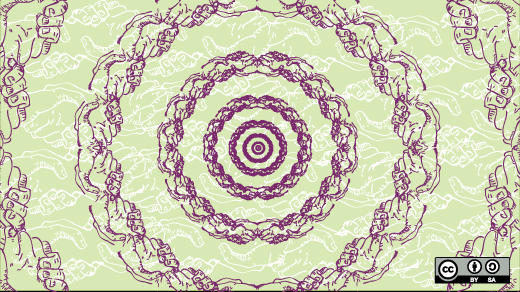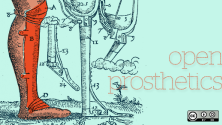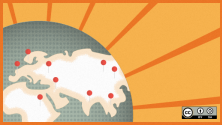Corruption, poverty, war, hunger, healthcare, education, safety. These are only a few of the problems faced by people in developing countries. Many of these problems are caused by exclusion, fear, intimidation, broken infrastructure, and lack of money, resources, access to information, and tools.
These are hard problems to solve but, as Theodore Roosevelt said:
"Nothing in this world is worth having or worth doing unless it means effort, pain, difficulty."
At the core of open source are communities. Communities of like-minded individuals, working together, openly and freely sharing ideas and solutions for the benefit of others.
Because of the diverse group of global contributors in the open source community, problems are identified and surfaced faster. And, more often than not, progress towards a resolution happens faster and the underlying problems are solved better because of this diversity.
The Third World Problems project
The Third World Problems project was conceived and built around the idea of using open source, open data, collaboration, and community to build a free resource of information and tools that will help people everywhere create a better future for themselves.
It's envisioned as a resource to identify and surface problems and bring together people to suggest, build, or assist in building solutions. A platform to inform and amplify the amazing work that is already being done by open source communities all over the world.
Third World Problems is now in its germination phase. As far as projects go, the biggest project is Third World Problems itself, meaning the platform through which the organization will initate contributions to solving the problems of people in the developing world. It will be where challenges are described, where people will ask for help.
A potential project scenario
Through the platform, there are innumerable projects we potentially can undertake.
For example, I recently read an article on the New York Times website, "Hackers Find 'Ideal Testing Ground' for Attacks: Developing Countries." This headline was not a surprise to me. Of course, developing countries would be fertile ground, as they face so many other challenges that digital security often falls by the wayside.
While the article pins the increased threat in these countries on complete ignorance or lack of concern, I think it's really because of poor awareness, education, tools, and resources. On all four of these points, the open source community can make a big difference.
We can raise awareness through outreach and education. Through partnerships with existing organizations, such as the Electronic Frontier Foundation (EFF), the Tor project, Open Web Application Security Project (OWASP), and Let's Encrypt, we can cast a wider net.
These partnerships will enable volunteers to join in and, for example, write guides, curriculum, and other educational materials on topics including: How to secure your business data. How to set up your site to run over SSL. How everyday users of the internet can stay safe online, protect their privacy, and secure their communication. The list goes on.
Then, we can distribute these materials through Third World Problems and our partner channels.
If all this can sprout from a single problem highlighted by a single article, imagine what we can do when we combine our voices and talents.
Getting involved
To bring Third World Problems to life, we need help and momentum from people in a variety of areas.
We need people who are on the ground. For example, people who live, work, or volunteer directly in these communities, who can define the challenges through firsthand experience. We also need people in these communities who can take the work that is produced, use it, and teach others in their communities, then contribute by providing feedback on the successes, the failures, and how the tools and resources can be improved.
We need design, user experience, and accessibility professionals who can create the best possible portal and tools for end users.
We need technical writers who can help build an open curriculum and a set of resources that teach skills in high demand, like programming, entrepreneurship, science, math, design, health, and financial management.
We need social media experts who can help us publicize the problems we identify, amplify the work being done, and share the solutions we create. The hope is that, as the results of our work reach more people and communities, it will encourage even more people to get involved.
We need developers who are willing to offer their time and skills. Developers who enjoy solving hard problems, things that will not always be technically hard, but require creativity and new ways of thinking.
We need people from all walks of life, from all corners of the world. People who want to make a difference. People with passion, spirit, and drive. People who wish to leave the world in a better state than the one they were born into.
Everything that is produced as part of the project, such as data generated, collaborations formed, tools built, insights gained, and so forth, will be done in the open and released as open source to the world.
If the goals behind the Third World Problems project speak to you, please visit our project website, Twitter, and GitHub page. Join us on IRC or subscribe to our mailing list. Let us know your ideas and how you wish to contribute, and please help us spread the word.







Comments are closed.